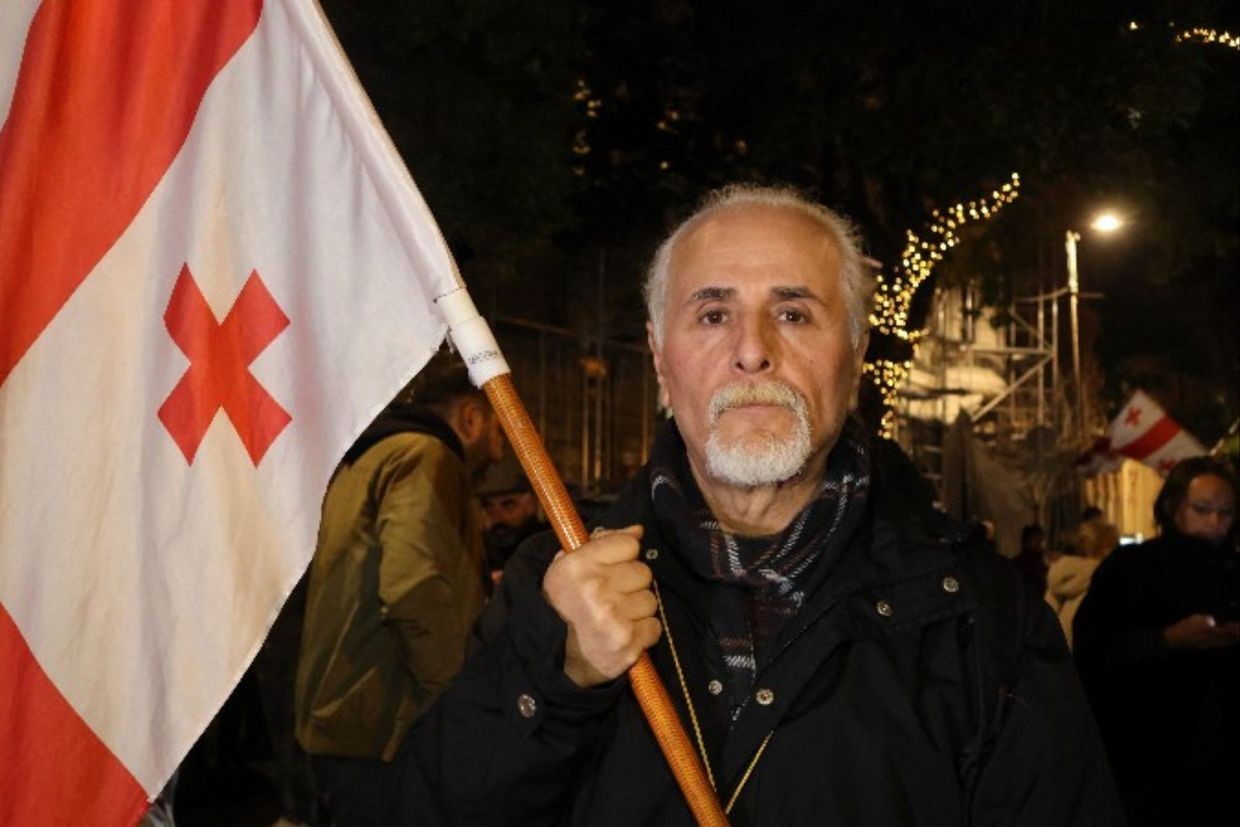
Editor’s note: This article has been updated to include the information that Temur Katamadze has been released from the investigative agency in the city of Ordu.
The Ministry of Internal Affairs has expelled Temur Katamadze, an ethnic Georgian activist from Turkey, from Georgia. According to his lawyers, he is now detained in Turkey on charges he claims are fabricated. Katamadze had lived in Georgia for years and actively participated in anti-government protests.
A descendant of Georgian Muslims deported in the 19th century, Katamadze was detained during protests in Batumi in January on the grounds that he had no legal basis to reside in Georgia. He then faced the threat of expulsion to Turkey, where he said he was at risk of imprisonment on fabricated charges.
Tamta Mikeladze, director of the Social Justice Center (SJC), a rights organisation representing Katamadze legally, wrote on social media that his deadline to voluntarily leave the country expired at midnight on Wednesday, after Georgian courts rejected his request for asylum or a humanitarian status.
Shortly afterwards, Deputy Interior Minister Aleksandre Darakhvelidze held a briefing during which he shared information on several cases, including Katamadze’s. He confirmed that Katamadze had been expelled from the country and stated that this was done ‘in full compliance with Georgian legislation, in accordance with a court decision that had entered into legal force’.
At the end of April, the Tbilisi Court of Appeals denied Katamadze’s request for asylum. Following this decision, the Interior Ministry’s Migration Department gave him 10 days to voluntarily leave the country. Katamadze’s lawyers then returned to court, this time challenging the department’s decision. However, none of the courts granted the appeal — including the Court of Appeals, which issued its final rejection on 5 June.
Katamadze’s lawyer, Mariam Kvelashvili from the SJC, told OC Media that following his deportation to Turkey, her client was transferred to the investigative authorities in the Black Sea coastal town of Ordu, based on an arrest warrant that had previously been issued for him by Turkish authorities.
Kvelashvili added that even if Katamadze had chosen to leave the country voluntarily, he had no option but to go to Turkey, as his passport had expired prior to his detention in Batumi.
Katamadze’s lawyers had filed his case with the European Court of Human Rights in Strasbourg (ECHR). The court did not apply for any interim measures to suspend his deportation, but according to the SJC, the lawyers were also in communication with the United Nations.
‘[The authorities] knew very well that after Strasbourg, we had also appealed to the UN Human Rights Committee, yet they did not give Temur Katamadze a single extra day to fully exhaust available international mechanisms’, Mikeladze wrote on Facebook on Wednesday morning, pointing to Katamadze’s immediate deportation following the expiration of the deadline.
‘Unfortunately, international mechanisms are not flexible enough to respond to such immediate situations’, she added, emphasising that the SJC will continue to take Katamadze’s case to international courts.
Batumelebi quoted Katamadze’s partner, Nino Kakulia, as saying he was ‘slyly taken to Turkey at night’, without allowing her the chance to bid him farewell.
Katamadze was first administratively detained during a protest on 11 January and sentenced to five days in detention for allegedly disobeying police orders.
After his release from administrative detention, the activist was re-arrested just minutes later on the grounds that he had no legal basis to remain in Georgia. The Interior Ministry subsequently requested his deportation, pushing Katamadze to go on hunger strike for 48 days in protest against his arrest.
Katamadze claimed that during his first detention, he was physically assaulted by Batumi police chief Irakli Dgebuadze and 10 other officers, with Dgebuadze reportedly telling him, ‘You dog and Turk, what do you want in Georgia? Get out of here’.
Katamadze’s past and a case in Turkey
Born in Istanbul, Turkey, 56-year-old Katamadze is a descendant of Georgian Muslims who were deported by the Russian Empire to the Ottoman Empire in the 19th century.
During the ongoing protests against the government’s EU U–turn, Katamadze became known as the ‘flag-bearing grandpa’ for his active participation in demonstrations in Batumi with the Georgian flag in hands.
Katamadze has said that during his four decades in Turkey, he worked to preserve Georgian identity, language, and culture, and advocated for the right of ethnic Georgians to receive education in their native language. He collaborated with a Georgian-language magazine, took part in cultural events, and launched a Georgian-language news page.
He moved to Georgia in 2012 to advocate for the rights of ethnic Georgians from Turkey, Iran, and Azerbaijan — communities he said have been consistently denied Georgian citizenship. Katamadze himself was denied Georgian citizenship three times but received a six-year residence permit in 2013. His appeals against the decisions to deny him citizenship were unsuccessful.
According to Katamadze’s lawyers, their client discovered in 2023 that a detention warrant had been issued for him in Turkey. According to documents obtained by Georgian media, the case is linked to alleged ties to the late Turkish cleric Fethullah Gülen’s movement — whom the Turkish government blames for the attempted coup in 2016.
One of Katamadze’s lawyers, Mariam Gabroshvili, told OC Media in April that he ‘has never been a member of that group’ and only had friendly ties with some individuals affiliated with the movement due to his work at a company based in Batumi.
Gabroshvili said Georgian courts rejected the defence’s argument that these connections could put Katamadze’s life and freedom at risk in Turkey and denied him both humanitarian and refugee status.
According to the lawyer, Katamadze believes the persecution he faces in Turkey is tied to his activism defending the rights of ethnic Georgians.
Update: Temur Katamadze’s lawyer Mariam Kvelashvili has told OC Media, citing Katamadze’s friends, that Katamadze was released after being questioned by the Turkish authorities in the city of Ordu. She said details about the case against him would become clearer once they are able to get in direct contact him.











